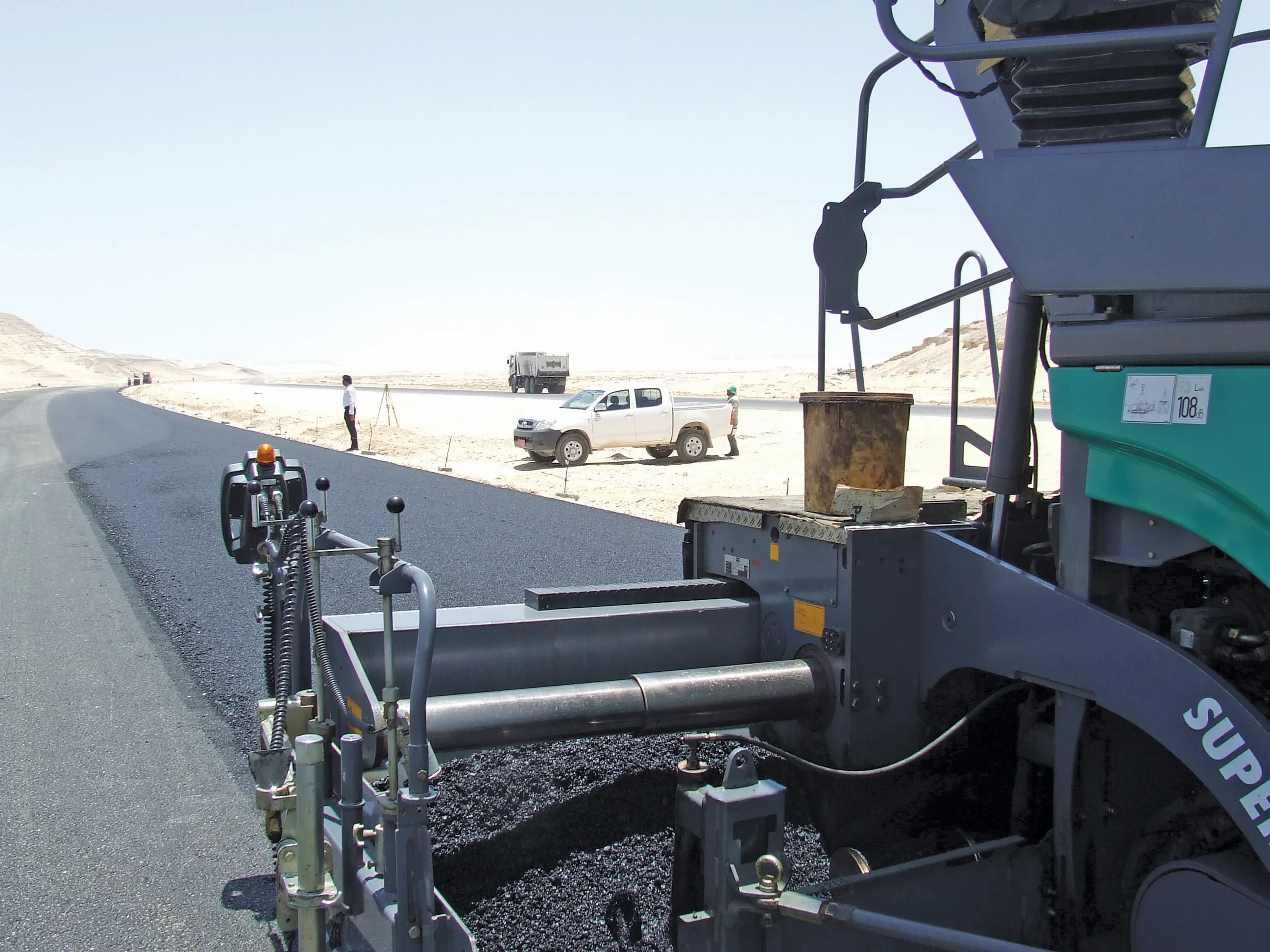Championships in 2012. With plans in place to cohost the UEFA 2012 football championships with the Ukraine, Poland's road infrastructure is undergoing major developments to bring it up to date with the rest of the European Union. And to ensure the completed roads and pavements meet the required quality standards, Cooper Technology of Derby, UK, was awarded a contract to provide asphalt testing equipment to
May 2, 2012
Read time: 4 mins

POLAND has ambitious plans to construct around 900km of new highways in time for the European Football Championships in 2012.
With plans in place to cohost the UEFA 2012 football championships with the Ukraine, Poland's road infrastructure is undergoing major developments to bring it up to date with the rest of the1116 European Union.
And to ensure the completed roads and pavements meet the required quality standards,5941 Cooper Technology of Derby, UK, was awarded a contract to provide asphalt testing equipment to the laboratories involved in this massive and ambitious project.
With a population close to 39 million, Poland has an extensive road system (204,000km) of mainly twolane routes.
However, following its membership to the European Union in 2004, a serious lack of underinvestment left the country lacking in the density and quality of motorways, expressways and city ring roads required for this fastgrowing economy.
In response to public demand and requirements to meet European standards, the Polish government embarked on an ambitious programme to build 992km of motorways, 1,136km of expressways and 324km of ring roads between 2010-2012.
The massive construction works has required extensive funding, with a record 31 billion PLN (€7.75 billion) planned for 2010 and 23 billion PLN (€5.75 billion) in 2012.
The project has suffered numerous funding setbacks since it began, and estimates suggest that the Polish government will have to borrow €6 billion during 2010 to fund the planned road investments with around €2.66 billion coming from the1054 European Investment Bank (EIB).
However, the scheme is now largely back on track and in order to meet its ambitions, the Polish General Directorate for National Roads and Motorways (1361 GDDKiA) invited expressions of interest from companies to tender for provision of testing equipment to its 16 regional laboratories to achieve quality standards set by EU regulations and Poland's own requirements.
Cooper Technology, which designs and manufactures high performance testing equipment for asphaltic and unbound materials, and which is involved with standards committees in the UK, Europe and the US, won a contract to provide over a €1 million worth of bespoke high performance asphalt quality testing equipment for the laboratories involved in the country's road construction programme.
The company will provide laboratories at GDDKiA with universal pneumatic systems, testing accessories and temperature controlled cabinets, large device wheel trackers, as well as large device gyratory and roller compactors.
Cooper's support team, which is actively involved with development of the equipment, is able to offer "a speedy, well-informed response to any issues that may arise, regardless of where in the world they may be." According to Cooper's the equipment it is supplying is important to the success of the construction plans in terms of ensuring all aspects of the materials (including asphalts) meet both European Standards and Polish regulations. While the testing machines are aimed at helping to improve the performance and longevity of the roads being built, they are also designed "to use the minimum materials, to lower maintenance costs and provide the most environmentally friendly options available." The company says its machines conform to European EN12697 standards on fatigue testing, modulus testing, wheel tracking, roller compaction and gyratory compaction.
Three major motorways are now under construction in Poland and will span the entire country, covering the majority of major cities, including Poznan, Gdansk, Wroclaw, Lodz, Warsaw, Krakow and Katowice, connecting them to Western Europe. Marianne Rolland, commercial director at Cooper Technology, said: "We have worked closely with2356 Viateco, our partners in Poland since the very beginning of the project and by complying with extremely stringent tender requirements we won the competition.
"Everyone at Cooper Technology is proud to have played such a key part in a project that will impact so significantly on the future of Poland's economy."
With plans in place to cohost the UEFA 2012 football championships with the Ukraine, Poland's road infrastructure is undergoing major developments to bring it up to date with the rest of the
And to ensure the completed roads and pavements meet the required quality standards,
With a population close to 39 million, Poland has an extensive road system (204,000km) of mainly twolane routes.
However, following its membership to the European Union in 2004, a serious lack of underinvestment left the country lacking in the density and quality of motorways, expressways and city ring roads required for this fastgrowing economy.
In response to public demand and requirements to meet European standards, the Polish government embarked on an ambitious programme to build 992km of motorways, 1,136km of expressways and 324km of ring roads between 2010-2012.
The massive construction works has required extensive funding, with a record 31 billion PLN (€7.75 billion) planned for 2010 and 23 billion PLN (€5.75 billion) in 2012.
The project has suffered numerous funding setbacks since it began, and estimates suggest that the Polish government will have to borrow €6 billion during 2010 to fund the planned road investments with around €2.66 billion coming from the
However, the scheme is now largely back on track and in order to meet its ambitions, the Polish General Directorate for National Roads and Motorways (
Cooper Technology, which designs and manufactures high performance testing equipment for asphaltic and unbound materials, and which is involved with standards committees in the UK, Europe and the US, won a contract to provide over a €1 million worth of bespoke high performance asphalt quality testing equipment for the laboratories involved in the country's road construction programme.
The company will provide laboratories at GDDKiA with universal pneumatic systems, testing accessories and temperature controlled cabinets, large device wheel trackers, as well as large device gyratory and roller compactors.
Cooper's support team, which is actively involved with development of the equipment, is able to offer "a speedy, well-informed response to any issues that may arise, regardless of where in the world they may be." According to Cooper's the equipment it is supplying is important to the success of the construction plans in terms of ensuring all aspects of the materials (including asphalts) meet both European Standards and Polish regulations. While the testing machines are aimed at helping to improve the performance and longevity of the roads being built, they are also designed "to use the minimum materials, to lower maintenance costs and provide the most environmentally friendly options available." The company says its machines conform to European EN12697 standards on fatigue testing, modulus testing, wheel tracking, roller compaction and gyratory compaction.
Three major motorways are now under construction in Poland and will span the entire country, covering the majority of major cities, including Poznan, Gdansk, Wroclaw, Lodz, Warsaw, Krakow and Katowice, connecting them to Western Europe. Marianne Rolland, commercial director at Cooper Technology, said: "We have worked closely with
"Everyone at Cooper Technology is proud to have played such a key part in a project that will impact so significantly on the future of Poland's economy."








